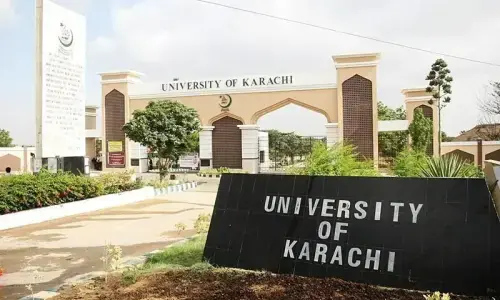ISLAMABAD: Passengers benefiting from Pakistan’s bus rapid transit system show high levels of satisfaction with the BRT itself, but they complain that the absence of an effective shuttle network makes it difficult to reach their points of access, according to a report prepared by the Central Asia Regional Economic Cooperation (CAREC) and the Asian Development Bank.
The report, “Why and how to manage speed”, cites analyses that highlight lessons to be learned from China and Pakistan’s BRT systems. China’s BRT systems often include efficient services to increase use, while Pakistan’s systems show high levels of satisfaction with the BRT itself, but highlight the absence of a network that could enable users to reach the point where they intend to board a bus.
The report says provision of bicycle parking facilities at BRT stations improves access for users in China, citing Guangzhou as an example.
Faster movement
“In Pakistan, population density, development volume, and land use for economic activities all increased after the introduction of BRT systems; they could be further improved by addressing transit, walking and security issues for women,” the report observed.
Ridership could also be improved if lane design allowed for faster movement of BRT than other traffic with more dedicated lanes for BRT.
Selective development of BRTs would allow for fares to cover more of the operating costs, while station spacing can be increased to improve BRT speed and reliability, the Carec report said.
“But this must be balanced with acceptable walking distances for users.”
These days BRT systems are operating in many cities in China, which is in part attributed to the needs of many densely populated cities, and in part to Chinese mayors having greater independent discretion vis-à-vis transport planning and budgeting than city administrators in other countries.
Pakistan has adopted BRT systems in several cities since the first one started functioning in Lahore in 2013. According to the report, BRT systems are more affordable than metro networks, with global review studies indicating that appropriately designed and operated BRT systems provide an efficient transport service.
It is comparable to railway due to its ability to use existing road space.
Bus Rapid Transit systems offers a good facility for big low- to middle-income cities due to relatively low costs, leading to lower fares than those offered by metro networks.
These systems are getting increasingly common in Latin America, Asia, and Africa.
According to the report, managing speed is one of the most powerful and cost-effective ways to achieve road safety. It has the potential to reduce crash frequency and severity, as well as to deliver many other direct economic and social benefits.
The costly impact of speed can be effectively managed by adopting evidence-based intervention to deliver safe speeds. Interventions that reduce speed are a cost-effective opportunity for CAREC countries to dramatically reduce crash deaths and injuries within a reasonable timeframe, the report suggests.
Speed-managing interventions are highly cost-effective, with some returning $17 in savings for every dollar invested.
Reducing travel speeds by just 10kms per hour across all roads in the CAREC region would result in a significant reduction in the number of crash and deliver additional economic benefits.
“A broad adoption of multiple powerful speed reducing interventions is critical to road safety and for other social and economic benefits.
“The business case is compelling for CAREC member countries to adopt speeds that protect pedestrians and other vulnerable road users, and to move beyond the misinformation that has constrained speed management policy all over the world.”
Published in Dawn, August 18th, 2024


































